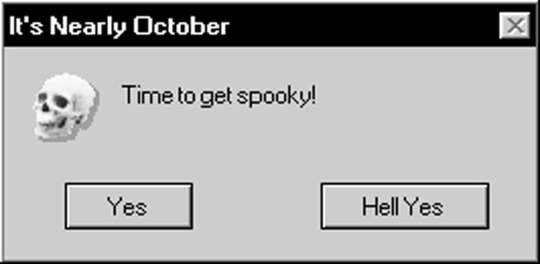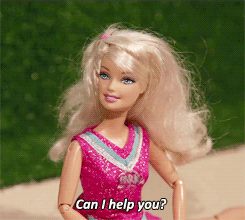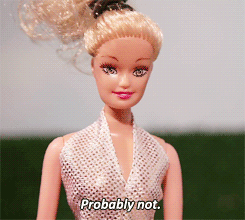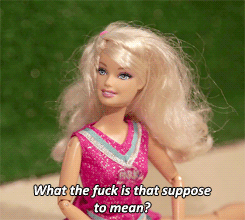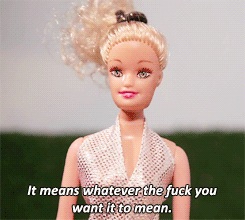Text
The temptation to role swap not the soulmates but the thematic parallels.
Like, ‘they would be each other if the circumstances were different’ well, here’s the different circumstances, how different are they really?
How similar are they really if given the other’s life?
Admittedly, there are some stories where that won’t work, and there are some where you have to finagle situations for it to work, but like-
Do you see the vision? The sight of how you don’t swap the soulmates or the lovers or those that are close but instead those that are far too similar in circumstance. Those that have nothing to do with the other yet mirror one another perfectly.
I don’t know, my mind is stuck on the story that could and how different yet so similar the result is.
#Writing shit#My shit#Ao3 shit#yes I do have an au stuck in my head how did you know#it doesn’t help that I made a logic jump with what I’ve already done and watched as the story changed#like ‘oh shit I didn’t even know I could do that’#and for those of you that want to know the fandom thing i did#I accidentally swapped ming yi with jun wu#it was a wild realisation#The words have corrupted my mind
0 notes
Text
Zoom In, Don’t Glaze Over: How to Describe Appearance Without Losing the Plot
You’ve met her before. The girl with “flowing ebony hair,” “emerald eyes,” and “lips like rose petals.” Or him, with “chiseled jawlines,” “stormy gray eyes,” and “shoulders like a Greek statue.”
We don’t know them.
We’ve just met their tropes.
Describing physical appearance is one of the trickiest — and most overdone — parts of character writing. It’s tempting to reach for shorthand: hair color, eye color, maybe a quick body scan. But if we want a reader to see someone — to feel the charge in the air when they enter a room — we need to stop writing mannequins and start writing people.
So let’s get granular. Here’s how to write physical appearance in a way that’s textured, meaningful, and deeply character-driven.
1. Hair: It’s About Story, Texture, and Care
Hair says a lot — not just about genetics, but about choices. Does your character tame it? Let it run wild? Is it dyed, greying, braided, buzzed, or piled on top of her head in a hurry?
Good hair description considers:
Texture (fine, coiled, wiry, limp, soft)
Context (windblown, sweat-damp, scorched by bleach)
Emotion (does she twist it when nervous? Is he ashamed of losing it?)
Flat: “Her long brown hair framed her face.”
Better: “Her ponytail was too tight, the kind that whispered of control issues and caffeine-fueled 4 a.m. library shifts.”
You don’t need to romanticise it. You need to make it feel real.
2. Eyes: Less Color, More Connection
We get it: her eyes are violet. Cool. But that doesn’t tell us much.
Instead of focusing solely on eye color, think about:
What the eyes do (do they dart, linger, harden?)
What others feel under them (seen, judged, safe?)
The surrounding features (dark circles, crow’s feet, smudged mascara)
Flat: “His piercing blue eyes locked on hers.”
Better: “His gaze was the kind that looked through you — like it had already weighed your worth and moved on.”
You’re not describing a passport photo. You’re describing what it feels like to be seen by them.
3. Facial Features: Use Contrast and Texture
Faces are not symmetrical ovals with random features. They’re full of tension, softness, age, emotion, and life.
Things to look for:
Asymmetry and character (a crooked nose, a scar)
Expression patterns (smiling without the eyes, habitual frowns)
Evidence of lifestyle (laugh lines, sun spots, stress acne)
Flat: “She had a delicate face.”
Better: “There was something unfinished about her face — as if her cheekbones hadn’t quite agreed on where to settle, and her mouth always seemed on the verge of disagreement.”
Let the face be a map of experience.
4. Bodies: Movement > Measurement
Forget dress sizes and six packs. Think about how bodies occupy space. How do they move? What are they hiding or showing? How do they wear their clothes — or how do the clothes wear them?
Ask:
What do others notice first? (a presence, a posture, a sound?)
How does their body express emotion? (do they go rigid, fold inwards, puff up?)
Flat: “He was tall and muscular.”
Better: “He had the kind of height that made ceilings nervous — but he moved like he was trying not to take up too much space.”
Describing someone’s body isn’t about cataloguing. It’s about showing how they exist in the world.
5. Let Emotion Tint the Lens
Who’s doing the describing? A lover? An enemy? A tired narrator? The emotional lens will shape what’s noticed and how it’s described.
In love: The chipped tooth becomes charming.
In rivalry: The smirk becomes smug.
In mourning: The face becomes blurred with memory.
Same person. Different lens. Different description.
6. Specificity is Your Superpower
Generic description = generic character. One well-chosen detail creates intimacy. Let us feel the scratch of their scarf, the clink of her earrings, the smudge of ink on their fingertips.
Examples:
“He had a habit of adjusting his collar when he lied — always clockwise, always twice.”
“Her nail polish was always chipped, but never accidentally.”
Make the reader feel like they’re the only one close enough to notice.
Describing appearance isn’t just about what your character looks like. It’s about what their appearance says — about how they move through the world, how others see them, and how they see themselves.
Zoom in on the details that matter. Skip the clichés. Let each description carry weight, story, and emotion. Because you’re not building paper dolls. You’re building people.
8K notes
·
View notes
Text
I HAVE SURVIVED THE TRIP HOME AND AM DONE WITH CAMPING FOR THE NEXT SIX YEARS!
Now excuse me as I go be the most stereotypical southerner ever.
0 notes
Text
every time i start to feel cringe for being too deep in the hyperfixation i remember the intense depression i have waded through and have to remind myself that enjoyment is fleeting (so grab it with both hands), and life is for loving (so hold that love close), and if anyone thinks i’m cringe they must not be having a very good time (and i hope they can find a good time soon).
129K notes
·
View notes
Text
my fav genre of fanfic is "ship i have not ever considered but the author is insane abt it in a way that intrigues me immensely"
#crack ships my beloved#and just character study friendships in general#like just finished a xie lian/he xuan friendship fic#it was peak and am now obsessed#but yeah live when authors go#‘wonder what will happen if I put these two together’#and then do it#you are the backbone of fandom#Fandom shit#ao3 shit#writing shit
23K notes
·
View notes
Text
"dolphins are completely evil" I actually don't think we should assign human morality to animals with no concept of law or civilisation with an intelligence roughly equating to that of a toddler
28K notes
·
View notes
Note
is my cat green? i sent this picture to a friend and she asked why my cat was green and i refuse to believe it 💔

3K notes
·
View notes
Text
I read isekai adjacent stuff like I drink water because everyone needs air to breathe but one thing that pisses me off is when the protagonist goes on and on and on about how she wants revenge and then that revenge boils down to mildly humiliating someone once or twice or making them lose a small proportion of their great wealth or something else hilariously mild
NO!!! RIP THEIR FUCKING DICKS OFF!!!!!!!!!!
886 notes
·
View notes
Text
The two best reasons to ship anything are:
1.Incredible deep and detailed narrative themes. The parallels that seem to hit just right, the narrative foils that they can be to each other, the intricate dynamic that's both extremely complex and easily understood. The juxtaposition between something that's harsh and undoubtedly toxic, with the softer undertones, the parts where you read in-between the lines and find a mutual feeling of loneliness from both parts, their intrinsic understanding of each other comes from the mere fact that they're each others mirrored reflections and shadows. In the end both sides will be together forever, and you as an audience can clearly see their tragedy laid out before in a path that blurs pure anguish and tender romance
2.It would be so fucking funny
27K notes
·
View notes
Text
I can now fade away into secrecy as long as you all have dark mode enabled. if you don't I will take it personally. hey. hey you. you shouldn't be able to read this. jerk
33K notes
·
View notes
Text
Shen Qingqiu is Mommy/Shizun/Husband to Luo Binghe
Shang Qinghua views Luo Binghe as his son
And Shang Qinghua and Shen Qingqiu have big "Not quite amicably divorced but still meet up to drink, bitch about everyone they know, and share ill-advised drunk hand jobs like once a week" energy
Which is to say they are an Oedipal mess
285 notes
·
View notes
Text
God the temptation to spam my hyperfixation with writing brain rots are overwhelming
0 notes

